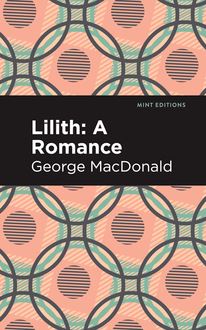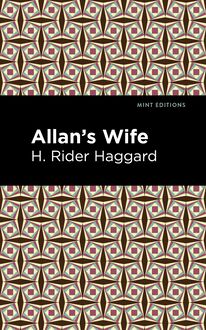-
 Univers
Univers
-
 Ebooks
Ebooks
-
 Livres audio
Livres audio
-
 Presse
Presse
-
 Podcasts
Podcasts
-
 BD
BD
-
 Documents
Documents
-
- Cours
- Révisions
- Ressources pédagogiques
- Sciences de l’éducation
- Manuels scolaires
- Langues
- Travaux de classe
- Annales de BEP
- Etudes supérieures
- Maternelle et primaire
- Fiches de lecture
- Orientation scolaire
- Méthodologie
- Corrigés de devoir
- Annales d’examens et concours
- Annales du bac
- Annales du brevet
- Rapports de stage
La lecture à portée de main

Vous pourrez modifier la taille du texte de cet ouvrage
Découvre YouScribe en t'inscrivant gratuitement
Je m'inscrisDécouvre YouScribe en t'inscrivant gratuitement
Je m'inscrisEn savoir plus
Vous pourrez modifier la taille du texte de cet ouvrage
En savoir plus

Description
The People of the Mist, an intoxicating mix of adventure, fantasy, and romance, is an underappreciated classic of English literature. Lesser-known among Rider’s works, this novel is perhaps more famous for being the origin of the phrase “Per Ardua ad Astra”—through hardship to the stars—than it is as a story that endures over a century after its publication.
Shaken by the loss of his fortune, abandoned by the woman he was to marry, Leonard Outram risks all he has left to search across Africa for all he could hope to gain. On the way, he befriends a young Zulu named Otter, who guides and assists him in a hostile land. Together, the two rescue a young Portuguese woman named Juanna Rodd and her nursemaid, Soa, from slavery. In the face of danger—and Soa’s mistrust—Outram finds love all over again. When the group finally discovers the fabled People of the Mist, it quickly becomes clear that in order to gain what they came in search for—the wealth of a powerful kingdom—they will first have to survive in a land torn apart by conflict between royalty and a reptilian god. From beginning to end, Haggard’s story of escape and survival is sure to keep readers immersed in its world and guaranteed to leave them wanting more.
To read H. Rider Haggard’s The People of the Mist is to enter a universe that could only be imagined by one of the greatest adventure writers of all time—at the height of his literary powers, no less. Published in book form in 1894 after being serialized in the weekly magazine Tit-Bits, Haggard’s novel is an epic of high fantasy that sheds light on how the intricacies of empire circulated in the popular imagination of British subjects during the reign of Queen Victoria. For the modern reader, it is both a finely-written tale of action and discovery, and a document of a world that is far from lost. Stories such as Haggard’s serve as reminders that we are never as far as we think from the sins of the past, that these “mysterious” and “exotic” lands of myth and adventure not only existed long before European conquest, but survive to this day in its shadow.
With a beautifully designed cover and professionally typeset manuscript, this new edition of H. Rider Haggard’s The People of the Mist is a classic of English literature reimagined for modern readers.
Sujets
Informations
| Publié par | Mint Editions |
| Date de parution | 29 novembre 2020 |
| Nombre de lectures | 0 |
| EAN13 | 9781513266763 |
| Langue | English |
| Poids de l'ouvrage | 3 Mo |
Informations légales : prix de location à la page 0,0500€. Cette information est donnée uniquement à titre indicatif conformément à la législation en vigueur.
Extrait
The People of the Mist
H. Rider Haggard
The People of the Mist was first published in 1894.
This edition published by Mint Editions 2020.
ISBN 9781513266329 | E-ISBN 9781513266763
Published by Mint Editions ®
minteditionbooks .com
Publishing Director: Jennifer Newens
Project Manager: Gabrielle Maudiere
Design & Production: Rachel Lopez Metzger
Typesetting: Westchester Publishing Services
C ONTENTS 1. T HE S INS OF THE F ATHER ARE V ISITED ON THE C HILDREN 2. T HE S WEARING OF THE O ATH 3. A FTER S EVEN Y EARS 4. T HE L AST V IGIL 5. O TTER G IVES C OUNSEL 6. T HE T ALE OF S OA 7. L EONARD S WEARS ON THE B LOOD OF A CA 8. T HE S TART 9. T HE Y ELLOW D EVIL ’ S N EST 10. L EONARD M AKES A P LAN 11. T HAT H ERO O TTER 12. A C HOICE L OT 13. A M IDNIGHT M ARRIAGE 14. V ENGEANCE 15. D ISILLUSION 16. M ISUNDERSTANDINGS 17. T HE D EATH OF M AVOOM 18. S OA S HOWS H ER T EETH 19. T HE E ND OF THE J OURNEY 20. T HE C OMING OF A CA 21. T HE F OLLY OF O TTER 22. T HE T EMPLE OF J AL 23. H OW J UANNA C ONQUERED N AM 24. O LFAN T ELLS OF THE R UBIES 25. T HE S ACRIFICE A FTER THE N EW O RDER 26. T HE L AST OF THE S ETTLEMENT M EN 27. F ATHER AND D AUGHTER 28. J UANNA P REVARICATES 29. T HE T RIAL OF THE G ODS 30. F RANCISCO ’ S E XPIATION 31. T HE W HITE D AWN 32. H OW O TTER F OUGHT THE W ATER D WELLER 33. T RAPPED 34. N AM ’ S L AST A RGUMENT 35. B E N OBLE OR B E B ASE 36. H OW O TTER C AME B ACK 37. “I AM R EPAID , Q UEEN ” 38. T HE T RIUMPH OF N AM 39. T HE P ASSING OF THE B RIDGE 40. O TTER ’ S F AREWELL ENVOI
Chapter 1
T HE S INS OF THE F ATHER ARE V ISITED ON THE C HILDREN
The January afternoon was passing into night, the air was cold and still, so still that not a single twig of the naked beech-trees stirred; on the grass of the meadows lay a thin white rime, half frost, half snow; the firs stood out blackly against a steel-hued sky, and over the tallest of them hung a single star. Past these bordering firs there ran a road, on which, in this evening of the opening of our story, a young man stood irresolute, glancing now to the right and now to the left.
To his right were two stately gates of iron fantastically wrought, supported by stone pillars on whose summits stood griffins of black marble embracing coats of arms, and banners inscribed with the device Per ardua ad astra . Beyond these gates ran a broad carriage drive, lined on either side by a double row of such oaks as England alone can produce under the most favourable circumstances of soil, aided by the nurturing hand of man and three or four centuries of time.
At the head of this avenue, perhaps half a mile from the roadway, although it looked nearer because of the eminence upon which it was placed, stood a mansion of the class that in auctioneers’ advertisements is usually described as “noble.” Its general appearance was Elizabethan, for in those days some forgotten Outram had practically rebuilt it; but a large part of its fabric was far more ancient than the Tudors, dating back, so said tradition, to the time of King John. As we are not auctioneers, however, it will be unnecessary to specify its many beauties; indeed, at this date, some of the tribe had recently employed their gift of language on these attractions with copious fulness and accuracy of detail, since Outram Hall, for the first time during six centuries, was, or had been, for sale.
Suffice it to say that, like the oaks of its avenue, Outram was such a house as can only be found in England; no mere mass of bricks and mortar, but a thing that seemed to have acquired a life and individuality of its own. Or, if this saying be too far-fetched and poetical, at the least this venerable home bore some stamp and trace of the lives and individualities of many generations of mankind, linked together in thought and feeling by the common bond of blood.
The young man who stood in the roadway looked long and earnestly towards the mass of buildings that frowned upon him from the crest of the hill, and as he looked an expression came into his face which fell little, if at all, short of that of agony, the agony which the young can feel at the shock of an utter and irredeemable loss. The face that wore such evidence of trouble was a handsome one enough, though just now all the charm of youth seemed to have faded from it. It was dark and strong, nor was it difficult to guess that in after-life it might become stern. The form also was shapely and athletic, though not very tall, giving promise of more than common strength, and the bearing that of a gentleman who had not brought himself up to the belief that ancient blood can cover modern deficiencies of mind and manner. Such was the outward appearance of Leonard Outram as he was then, in his twenty-third year.
W HILE L EONARD WATCHED AND HESITATED on the roadway, unable, apparently, to make up his mind to pass those iron gates, and yet desirous of doing so, carts and carriages began to appear hurrying down the avenue towards him.
“I suppose that the sale is over,” he muttered to himself. “Well, like death, it is a good thing to have done with.”
Then he turned to go; but hearing the crunch of wheels close at hand, stepped back into the shadow of the gateway pillar, fearing lest he should be recognised on the open road. A carriage came up, and, just as it reached the gates, something being amiss with the harness, a footman descended from the box to set it right. From where he stood Leonard could see its occupants, the wife and daughter of a neighbouring squire, and overhear their conversation. He knew them well; indeed, the younger lady had been one of his favourite partners at the county balls.
“How cheap the things went, Ida! Fancy buying that old oak sideboard for ten pounds, and with all those Outram quarterings on it too! It is as good as an historical document, and I am sure that it must be worth at least fifty. I shall sell ours and put it into the dining-room. I have coveted that sideboard for years.”
The daughter sighed and answered with some asperity.
“I am so sorry for the Outrams that I should not care about the sideboard if you had got it for twopence. What an awful smash! Just think of the old place being bought by a Jew! Tom and Leonard are utterly ruined, they say, not a sixpence left. I declare I nearly cried when I saw that man selling Leonard’s guns.”
“Very sad indeed,” answered the mother absently; “but if he is a Jew, what does it matter? He has a title, and they say that he is enormously rich. I expect there will be plenty going on at Outram soon. By the way, my dear Ida, I do wish you would cure yourself of the habit of calling young men by their Christian names—not that it matters about these two, for we shall never see any more of them.”
“I am sure I hope that we shall,” said Ida defiantly, “and when we do I shall call them by their Christian names as much as ever. You never objected to it before the smash, and I love both of them, so there! Why did you bring me to that horrid sale? You know I did not want to go. I shall be wretched for a week, I ______ ” and the carriage swept on out of hearing.
Leonard emerged from the shadow of the gateway and crossed the road swiftly. On the further side of it he paused, and looking after the retreating carriage said aloud, “God bless you for your kind heart, Ida Hatherley. Good luck go with you! And now for the other business.”
A hundred yards or so down the road, was a second gate of much less imposing appearance than those which led to the Outram Hall. Leonard passed through it and presently found himself at the door of a square red brick house, built with no other pretensions than to those of comfort. This was the Rectory, now tenanted by the Reverend and Honourable James Beach, to whom the living had been presented many years before by Leonard’s father, Mr. Beach’s old college friend.
Leonard rang the bell, and as its distant clamour fell upon his ears a new fear struck him. What sort of reception would he meet with in this house? he wondered. Hitherto his welcome had always been so cordial that until this moment he had never doubted of it, but now circumstances were changed. He was no longer in the position of second son to Sir Thomas Outram of Outram Hall. He was a beggar, an outcast, a wanderer, the son of a fraudulent bankrupt and suicide. The careless words of the woman in the carriage had let a flood of light into his mind, and by it he saw many things which he had never seen before. Now he remembered a little motto that he had often heard, but the full force of which he did not appreciate until to-day. “Friends follow fortune,” was the wording of this motto. He remembered also another saying that had frequently been read to him in church and elsewhere, and the origin of which precluded all doubt as to its truth:—
“Unto every one that hath shall be given, but from him that hath not shall be taken away even that which he hath.”
Now, as it chanced, Leonard, beggared as he was, had still something left which could be taken away from him, and that something the richest fortune which Providence can give to any man in his youth, the love of a woman whom he also loved. The Reverend and Honourable James Beach was blessed with a daughter, Jane by name, who had the reputation, not undeserved, of being the most beautiful and sweetest-natured girl that the country-side could show. Now, being dark and fair respectively and having lived in close association since childhood, Leonard and Jane, as might be expected from the working of the laws of natural economy, had gravitated towards each other with increasing speed ever since they had come to understand the possibilities of the institution of marriage. In the end thus mutual gravitation led to a shock and confusion of individualities which was not without its charm; or, to put the matter more plainly, Leonard proposed to Jane and had been accepted with many blushes and some tears and
Attention
En entrant sur cette page, vous certifiez :
- 1. avoir atteint l'âge légal de majorité de votre pays de résidence.
- 2. avoir pris connaissance du caractère érotique de ce document.
- 3. vous engager à ne pas diffuser le contenu de ce document.
- 4. consulter ce document à titre purement personnel en n'impliquant aucune société ou organisme d'État.
- 5. vous engager à mettre en oeuvre tous les moyens existants à ce jour pour empêcher n'importe quel mineur d'accéder à ce document.
- 6. déclarer n'être choqué(e) par aucun type de sexualité.
YouScribe ne pourra pas être tenu responsable en cas de non-respect des points précédemment énumérés. Bonne lecture !
-
 Univers
Univers
-
 Ebooks
Ebooks
-
 Livres audio
Livres audio
-
 Presse
Presse
-
 Podcasts
Podcasts
-
 BD
BD
-
 Documents
Documents
-
Jeunesse
-
Littérature
-
Ressources professionnelles
-
Santé et bien-être
-
Savoirs
-
Education
-
Loisirs et hobbies
-
Art, musique et cinéma
-
Actualité et débat de société
-
Jeunesse
-
Littérature
-
Ressources professionnelles
-
Santé et bien-être
-
Savoirs
-
Education
-
Loisirs et hobbies
-
Art, musique et cinéma
-
Actualité et débat de société
-
Actualités
-
Lifestyle
-
Presse jeunesse
-
Presse professionnelle
-
Pratique
-
Presse sportive
-
Presse internationale
-
Culture & Médias
-
Action et Aventures
-
Science-fiction et Fantasy
-
Société
-
Jeunesse
-
Littérature
-
Ressources professionnelles
-
Santé et bien-être
-
Savoirs
-
Education
-
Loisirs et hobbies
-
Art, musique et cinéma
-
Actualité et débat de société
- Cours
- Révisions
- Ressources pédagogiques
- Sciences de l’éducation
- Manuels scolaires
- Langues
- Travaux de classe
- Annales de BEP
- Etudes supérieures
- Maternelle et primaire
- Fiches de lecture
- Orientation scolaire
- Méthodologie
- Corrigés de devoir
- Annales d’examens et concours
- Annales du bac
- Annales du brevet
- Rapports de stage




















